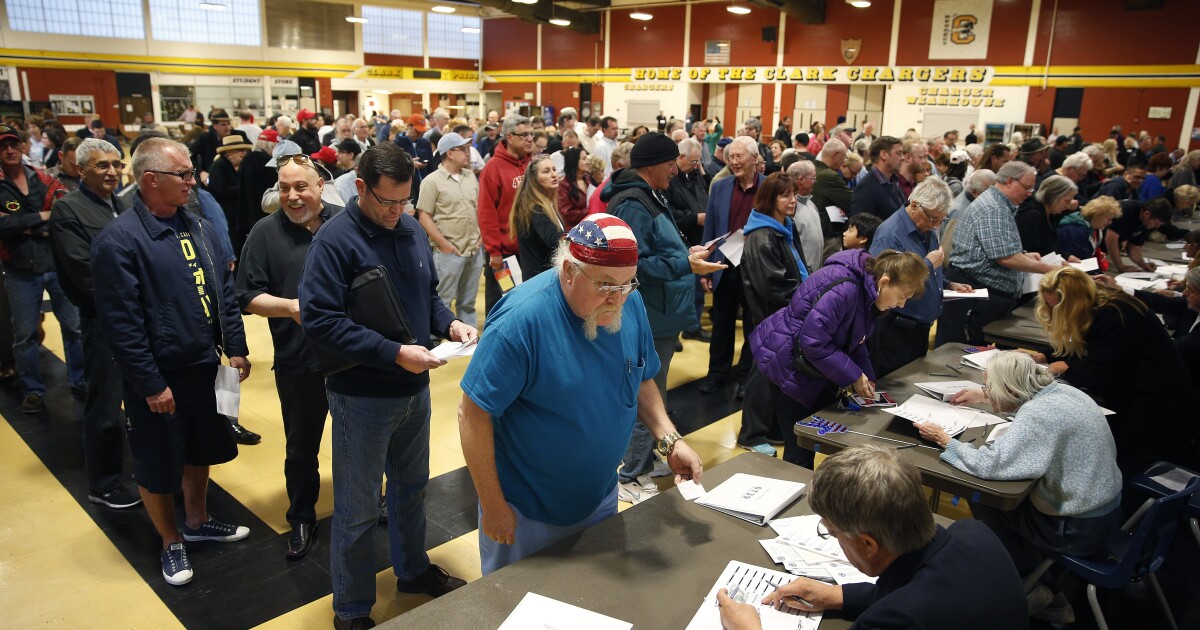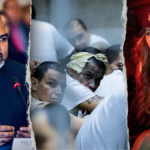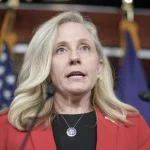

Democrats and Republicans in Nevada are feuding about which nominating system provides the most transparency to voters — a caucus or primary — after allegations of election fraud swarmed 2020.
The Nevada Republican Party is at the center of a puzzling dispute between state officials after Democrats diverted from one of the nation’s oldest political traditions by replacing the state’s caucus with a presidential primary. Now, some Republican candidates are accusing the state’s GOP leaders of fixing the nominating system to favor former President Donald Trump.
WHY A TELEVISED TRUMP RICO TRIAL COULD STILL BE WISHFUL THINKING
Below is everything you need to know about the primary debacle in Nevada, a competitive state for both Democrats and Republicans heading into 2024.
Caucus or primary?
Nevada’s Republican Party is fighting to maintain its “first in the West caucus” status, which GOP leaders say is a key factor in the presidential nomination process. Nevada will come third in the nation, after Iowa and New Hampshire, with the caucus scheduled for Feb. 8.
Last month, Republican Party leaders in Nevada announced they would move forward with a caucus two days after the state-run primary election on Feb. 6. Nevada’s long-standing tradition remained untouched until the Democratic-led legislature passed a law in 2021 switching the election from a caucus to a primary.
“Anybody who’s been involved in selecting a president since 1981 has been involved in a caucus,” Nevada Republican Party Chairman Michael McDonald told the Washington Examiner in an interview Sunday.
Under the newly implemented presidential primary system, Nevada voters who are registered as a Democrat or Republican can vote in the state’s presidential preference primary if their party has more than one candidate running.
“We have to have the primary by state law,” Nevada Secretary of State Francisco Aguilar said in an interview on PBS. “We will have the primary. It’s up to this party whether or not they want to accept the results of the primary.”
The Nevada GOP has made it clear that candidates who participate in the primary can’t participate in the caucus because the state-run primary is not approved by the Republican Party. To participate in the caucus, candidates must pay $55,000, and $20,000 can be given back if the candidate campaigns with the state party.
“The Democrats switched from a caucus to a primary because they realized the engagement and the involvement of its party was necessary,” Aguilar said, claiming that a primary is more inclusive because every eligible Nevadan will receive a mail-in ballot and can participate in early voting.
The Nevada GOP sues the state
Prior to the date of the caucus being released, the Nevada GOP filed a lawsuit in May against the state of Nevada and Aguilar to discard the primary.
The lawsuit, filed in Carson City by Republican National Committeewoman Sigal Chattah, claims the 2021 law mandating a presidential primary obstructs the rights given under the First and 14th amendments.
“Indeed, individuals are guaranteed the right to organize themselves into political parties, parties which are self-governed and not subject to state interference/influence as to how its presidential candidates are chosen,” the lawsuit reads.
The Democratic Party responded to the lawsuit by accusing Nevada’s GOP of trying to ensure Trump wins the state, arguing Democrats moved to put on a presidential preference primary over a caucus to simplify the nominating process and make voting more accessible.
“This is the GOP playbook at work — restrict voting access to limit as many voices as possible and change the rules if they don’t serve their interests,” Nevada State Democratic Party spokeswoman Mallory Payne said after the suit was filed. “Republicans aren’t even trying that hard to hide their intentions — they’re doing whatever it takes to protect their MAGA leader and get Trump over the finish line.”
McDonald said the lawsuit moved forward “because we want the state to be heard and it’s our right to choose our nominee.”
He also clarified that conversations occurred between Republicans and Nevada’s secretary of state prior to the lawsuit. McDonald said Aguilar is “great to work with” and that the Democrat understood Republicans’ concerns but said his “hands are tied” due to the 2021 law.
The GOP chairman said the statewide primary is estimated to cost Nevada taxpayers up to $5 million, noting Gov. Joe Lombardo (R-NV) pushed to have that money put into school systems or used to assist older Nevadans who are struggling with high living expenses due to inflation.
“We sued the state to say, ‘Listen, you’re going to waste $5 million on holding a primary,’” McDonald said. “In holding that primary, we’re not going to select our nominee. Our nominee is going to come out of a caucus.”
The lawsuit was dismissed by the Nevada District Court, but Judge James Russell did not outlaw a supplemental caucus, stating their delegates are not tied to the state-run primary. The GOP party filed an appeal of the ruling to Nevada’s Supreme Court this week.
Why are Republicans fighting to keep the caucus?
Besides Nevada’s long history of operating by a caucus, McDonald gave additional reasons as to why Republicans are pushing so hard to maintain the old nominating system, pointing to a “serious problem” in Nevada with mail-in ballots and serious questions being raised about accountability.
McDonald said, “Thousands of ballots that are just stuffed in trash cans after they go to an apartment complex” or “floating around the streets mailing to different addresses where people don’t live there anymore,” adding some ballots are “voted out of storage units, some that are voting out of vacant lots.”
Lombardo proposed a bill to implement a voter ID requirement and limit mail-in ballots by placing an end-of-Election Day deadline. Senate Bill 405 did not pass the committee, with Nevada’s 82nd legislative session ending in June.
“His concern is always about transparency, accountability,” McDonald said of Lombardo. As far as McDonald can remember, this was the first time a sitting governor didn’t “get the respect to have his bills heard.”
He noted the caucus began taking shape in the early days when the governor’s concerns were overlooked by the Democratic-controlled legislature.
“So right there — became a concern because the Democrats are telling us how we’re going to select our presidential nominee,” McDonald said. “Then, on top of that, they’re going to tell us how we’re going to do it.”
Emphasizing that people are concerned about voter fraud in Nevada, McDonald said all the issues the Republican Party has been fighting for the past several years were not a concern for the Democrats, saying “They’re just going to run us over.”
Listing off a number of factors that prove the “transparency” and “calculation” of the caucus, McDonald pointed to voter ID, precinct-based voting, Election Day as opposed to an election month, and paper ballots instead of machines.
“With the caucus, you find out the results of that night,” McDonald said, adding it will take two or three weeks before a winner is declared with the state-run primary. “And the biggest thing is there’s no dark money. So that was the concern that was answered by all the things, the reason we’re having a caucus over a primary.”
Intraparty feuds and campaign disputes
The push to keep Nevada’s caucus tradition has gathered backlash from Trump’s competition — Gov. Ron DeSantis (R-FL).
Multiple officials of DeSantis’s super PAC Never Back Down are attacking Nevada GOP Chairman McDonald, accusing him of using the caucus system to ensure Trump gets reelected.
“The situation in Nevada is very clear. They’re eliminating important grassroots processes, which doesn’t benefit voters, but it does benefit one person: Donald Trump,” Jess Szymanski, deputy communications director of Never Back Down, told the Washington Examiner on Friday.
“Nevada Republicans continue to lose elections with Trump at the top of the ticket, yet state GOP leaders are so obsessed with appeasing Trump that they’ve rigged their primary to prioritize Trump above their own voters.”
McDonald has strongly rebuked allegations of scheming to give an upper hand to Trump, saying that he has been in touch with several presidential campaigns and encourages all GOP candidates to campaign in Nevada.
“Nevada is open to anybody who wants to come in, and the Republican Party will help any candidate that wishes to come here,” McDonald said.
“If you want to be able to talk to the voters here, you have to interact with the voters. And simply the days of just sending out mass mailers and making the consultants rich, those days are gone in Nevada,” McDonald said, adding that voters want to hear from the candidates and ask questions.
McDonald received a subpoena from the House committee investigating the riot at the Capitol on Jan. 6, 2021, and testified over his role in signing a document falsely declaring his state for Trump in the 2020 election. McDonald, alongside Republican National Committeeman Jim DeGraffenreid, invoked his Fifth Amendment rights in front of the committee.
In June, McDonald appeared before a Washington, D.C., grand jury the same day Trump appeared in court in Miami in a classified documents case.
When asked about how McDonald separates his connection to Trump with his role as GOP chairman, he said, “The caucus does exactly that.”
“There’s no denying my relationship with the president,” McDonald said. “I’ve been with him since 2015.” He noted that Trump has “actively been working” and “is actively working in this state.”
“Like I said, there’s other candidates that have done the same thing,” McDonald said.
The Washington Examiner reached out to Trump’s team for comment.
What this means for Republican voters
Concerns about how the dueling primary and caucus systems will affect Nevada voters have been voiced by both sides.
Those who oppose caucuses, which are in-person gatherings where voters discuss their preferred candidate, argue the process limits voter access. State Republicans have said the caucus will choose its candidate for president. The primary vote is a separate process under state law, conducted entirely by mail.
Voters can expect more clarity in the coming months as the state GOP is required to file its final plan with the Republican National Committee by Oct. 1.
“We saw that, for the first time in Nevada history, there are more nonpartisan registered voters in Nevada than the two major parties,” Aguilar said, pointing to new voter registration information coming out in August.
“We have to again do a major voter education to say that the presidential primary is for the two major parties,” Aguilar said. “If you’re a registered Republican, you will participate in your process. If you’re a registered Democrat, you’re going to participate in your process. If you’re a nonpartisan registered voter, you’re unable to participate in the two-party systems.”
CLICK HERE TO READ MORE FROM THE WASHINGTON EXAMINER
Nonpartisan registered voters who want to participate in the primary must re-register. Nevada also offers same-day voter registration, so nonpartisan voters can re-register at the polling site, but Aguilar warned that poll workers are overworked and pushed to educate voters prior to the polls to avoid an influx of people who require additional steps.
The Washington Examiner reached out to the Nevada Democratic Party and the secretary of state’s office for comment.




